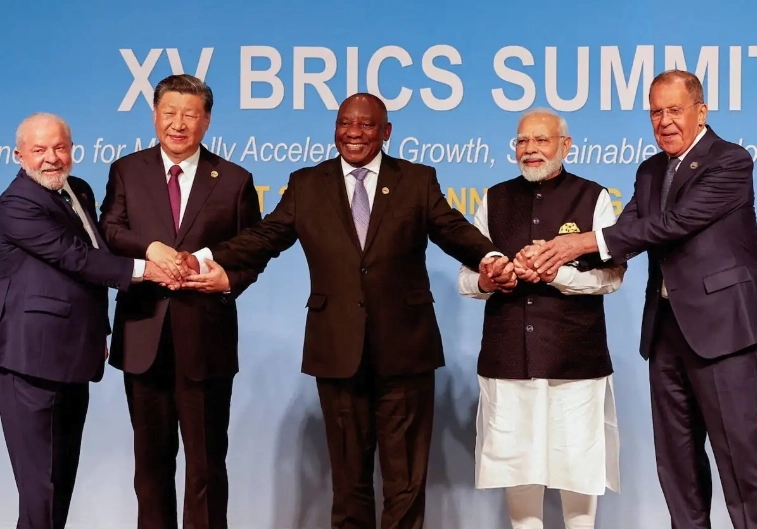In the field of international relations, the agendas and actions of governments do not only pursue pragmatic objectives. They also tend to express certain principles and values. In domestic and global politics, ideas matter, as they shape agendas to transform pre-existing realities. This is the case of that South-globalist narrative — different from the geopolitics of the Global South — that justifies distancing, if not hostility, regarding ties with nations commonly identified as the West. We recover some previously advanced ideas – in academic format – to contribute to our political dialogue about the global present.
Global South?
From an ideological and normative point of view, the Global South does not naturally identify the diversity of nations of the formerly called Third World. It is a reading about socioeconomic development, political order and international relations. View associated with intellectual approaches — Marxist, decolonial, alterglobalist, etc.— and political proposals of certain leftists. They all converge in questioning the liberal democratic model, on a social, nationa and global scale.
Speaking south-globalistly does not simply refer to countries with delimited borders. It means celebrating subjects and programs that share a repudiation of the geopolitical and geoeconomic order of capitalism. From this reading, which is garnering accurate criticism, the counterhegemonic Global South opposes a “north-centric, imperialist and exploitative globalism.” We are therefore faced with an ideological approach that converges with the strengthening of that civilizational narrative that legitimizes the challenge of powers such as Russia, China, Iran, or Turkey to the liberal international order.
The south-globalist position degrades the democratic concept and processes and equates the behavior of autocracies and polyarchies under the argument of “democratic diversity.” It disqualifies, tourt court, the application of sanctions to authoritarian regimes of the Global South — such as those of Vladimir Putin and Nicolás Maduro — responsible for human rights violations, rejecting them under arguments of “respect for sovereignty.”
Southglobalist narrative
Southglobalism invokes the imperial past of Western powers — which, unlike the Kremlin, have not annexed foreign territories in recent decades — to relativize the seriousness of events such as the current invasion of Ukraine. Under the mantras of multilateralism and civilizational diversity, the south-globalist narrative ends up supporting a statist sovereignty with an authoritarian tendency. This denies the multiple, governmental and popular sovereignty of human communities. To this end, it promotes a critique of the liberal order — whose principles and institutions are the foundations of the Latin American tradition. In that sense, as researcher and activist Kavita Krishnan points out, “the defense of multipolarity, without added democratic values, becomes an alibi for various despotic regimes in different parts of the world.”
There is a pending debate. It is about the need for Latin America to face the challenges of its international insertion based on its historical legacy, its regional and local dynamics. But this means promoting a national and global political order in which the defense of democracy and the promotion of human rights are respected. But in the Latin American case, the south-globalist narrative appears behind the agenda of various leaderships. Likewise, it justifies the calculated ambiguity of several Latin American governments in the face, for example, of the Kremlin’s aggression against Ukraine. Dismissing, furthermore, the undemocratic impact of consistent, sustained, and expanded multi-government cooperation with Russia.
The south-globalist mantra attacks the possibility of consolidating a region in which democracy and development go hand in hand. Therefore, it limits the chances of virtuously impacting the endogenous and exogenous dynamics of each country.
Authoritarianism and liberal order
Autocratic regimes that question and proscribe the influence of non-governmental actors and small countries in domestic and international politics are a brake on the democratic aspiration of our societies. Also, populist governments. These, coming to power within democratic rules of the game, relativize respect for republican principles and human rights in their foreign policy narratives. South-globalist narratives, on issues such as the invasion of Ukraine, the reluctance to relaunch ties with the European Union, the strengthening of political — not merely economic — ties with China, are a questioning of the principles and institutions of the liberal order.
A segment of the regional academy has a great responsibility in the positions expressed to support such a debate. See as an example recent works such as The Tangram of China (2023), which invites the “relativization of democracy” (p. 129). Dialectical incrementalism: a case of innovation in Hengqin (China) (2020), which uses the concept “pluralistic democracy” to define the Chinese regime and contrast it with Western democracies (p. 323).
Or also, “A view from Latin America, on the political organization in the People’s Republic of China” (2022), which from the summary states that it seeks to “understand the Chinese democratic model” and then argue that “human rights in China are collective and not liberal individuals” (p. 240). Other Latin American authors argue that in China there is another type of democracy other than liberal democracy, which could even be implemented in our region. The same happens with other positions on Russia, Iran or Cuba, written in a perspective that questions — without the intention of perfecting — the very foundations of the liberal democratic order.
Pluralism
The south-globalist perspective seems to forget that only in democracy is it possible to question a government decision. Only in democracy can the State’s agenda be perfected and the principles of the regime defended. And that, on the other hand, under autocracy, the government, the State, and the regime merge in a few hands. The contrast between the pluralism of narratives that enables the freedom of academic thinking versus the vertical and unappealable control of authoritarianism should be at the center of discussions about the Global South and Southglobalism. Especially in an international context as volatile as the one in which we operate today.
*Text originally published in Diálogo Político












